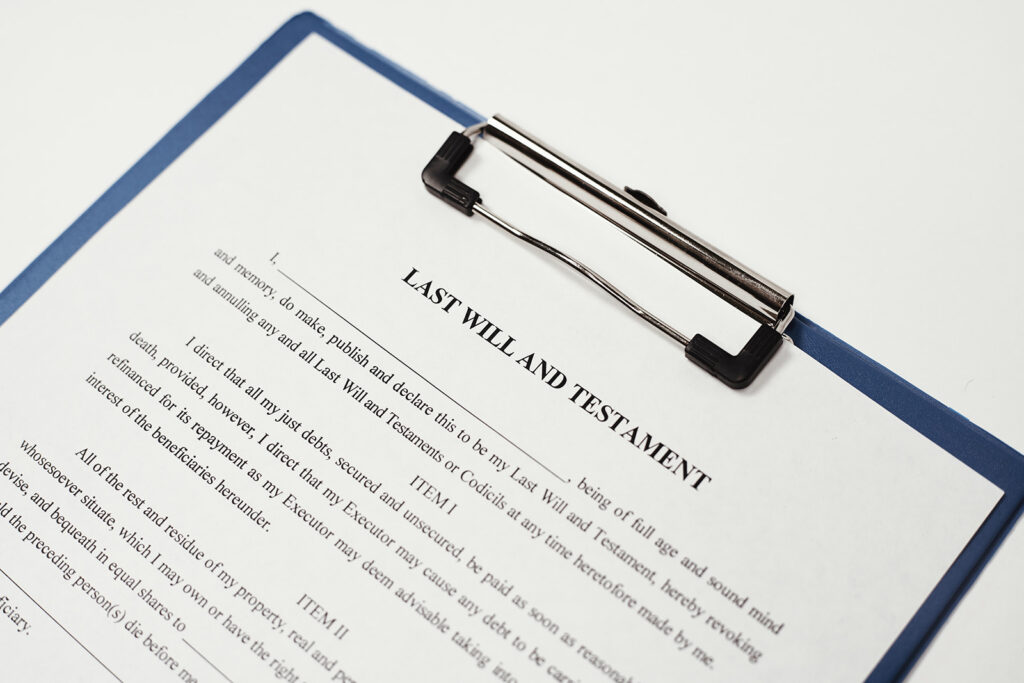Jump to a Topic
Is Probate Required in Oklahoma?
You May Wish to Seek Probate Legal Advice
How Do You Avoid Probate in Oklahoma if You Have Personal Property?
Can an Executor of an Estate or Personal Representative in Oklahoma be Compensated?
How Much Does an Executor in Oklahoma Get Paid?
How Long Does Probate in Oklahoma Take?
Do All Estates Have to Go Through Probate in Oklahoma?
Does a Will Have to Be Probated in Oklahoma?
The Oklahoma Probate Process
How Long Do You Have to File Probate After a Death in Oklahoma?
Probate Court in Oklahoma
Probate Code in Oklahoma
If you recently lost a family member, you know that the grief can be overwhelming, It can be difficult to manage the daily obligations you face. However, some things can’t be put off. Dealing with your loved one’s estate is one of those things.
Probate is the legal method of settling an estate. The court ensures that the will is valid and oversees the distribution of the estate according to the requirements of the will. If you’re involved with a decedent’s estate, you should understand the basics of probate for Oklahoma.

Is Probate Required in Oklahoma?
In most cases, probate is necessary in Oklahoma. However, there are a few exceptions to the law that may allow you to keep an estate or some of the assets out of probate court.
You May Wish to Seek Probate Legal Advice
While probate is not necessarily a difficult process, working with a probate attorney can make it easier and help you ensure you complete all tasks properly and meet all deadlines for the probate court. An experienced lawyer can help you understand how best to deal with real and personal property, estate tax, federal estate tax, and other legal obligations.
How Do You Avoid Probate in Oklahoma if You Have Personal Property?
The best way to avoid having an estate go through probate in Oklahoma is to place it in a revocable living trust before the owner dies. When you do this and name someone to be a beneficiary, the estate goes to them without the need to go through probate.
Another way to protect some assets from probate is to have a beneficiary named with them. For example, most life insurance policies have a beneficiary as do retirement policies. You can also do this with bank accounts, except the person is usually listed as payable on death.
If an asset is owned jointly by the deceased person and someone else, the surviving owner will own the entire asset. This works the same way if there are more than two joint owners as well.
Can an Executor of an Estate or Personal Representative in Oklahoma be Compensated?
Under Oklahoma law, the executor of an estate is allowed to be compensated for their time and any expenses they must pay out of pocket. If the amount of compensation is included in the will, that is the amount they will receive unless they choose to renounce it.

How Much Does an Executor in Oklahoma Get Paid?
If the will doesn’t mention payment or if the executor renounces such payment, they may receive a percentage of the estate value as follows:
- 5 percent of the first $1000
- 4 percent for the next $5000
- 2-1/2 percent of the rest of the value
The judge may allow more compensation for what is deemed to be extraordinary service.
How Long Does Probate in Oklahoma Take?
Probate will take on average about 4 to 6 months with simple estates. However, many will take more than a year to complete because of delays, such as someone contesting the will. It can be several years before the estate is distributed and probate closed in the most complex situations.
Do All Estates Have to Go Through Probate in Oklahoma?
Most estates will need to go through probate unless they meet one of the exceptions. However, the estate may qualify for a simplified version of probate. The first option is to use an affidavit, which allows the person to get access to bank accounts and other assets in the decedent’s name. This method is available if the estate is valued at $50,000 or less.
The second option is a simplified probate process, which works if the estate is valued at $200,000 or less or if the deceased person lived in another state when they died or passed away at least five years ago. The court will conduct a final hearing to close out probate.
Does a Will Have to Be Probated in Oklahoma?
A will must be filed with the court in the county where the deceased person lived at the time of their death. This step allows the court to validate the will if necessary and to ensure the wishes of the decedent are carried out. It is necessary even if there are no assets to probate.
The Oklahoma Probate Process
Probate Process in 7 Steps
Settling an estate in Oklahoma requires following specific guidelines. It is important to meet the deadlines and complete all the steps in the process.
Step 1
The Executor of the estate files a petition with the court to open probate.
Step 2
The court appoints an Executor of Estate or Personal Representative.
Step 3
The Executor of the Estate notifies the heirs and publishes notice of probate for creditors.
Step 4
The Executor takes inventory of all assets of the estate and appraises their value.
Step 5
The Executor pays the debts of the estate, including any money owed to creditors who file a claim aganst the estate. If assets must be sold to pay the debts, the executor will need to get approval from the court for the sale.
Step 6
The final tax returns are filed and any taxes are paid from the estate.
Step 7
The assets of the estate are distributed to the heirs and probate is closed.
How Long Do You Have to File Probate After a Death in Oklahoma?
The statutes of Oklahoma require anyone in possession of a will to present it within 30 days of the person’s death. If they fail to do so, the court may compel them to present it by retaining them in jail. This information is presented in Title 58-21.
Probate Court in Oklahoma
Probate in Oklahoma is handled by the district courts. Each county has its own district court to oversee the process for estates in that county. You can find the information about each court on the Oklahoma State Courts Network website Courts – OSCN. Some district courts have their own probate department for direct contact.
Probate Code in Oklahoma
Probate law is stated in the Oklahoma Revised Statutes in Title 58 of the code. You can find the statutes regarding probate on the Oklahoma Legislature website OKLAHOMA STATUTES (oklegislature.gov).


